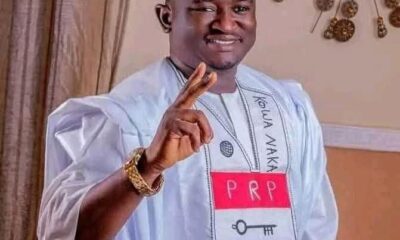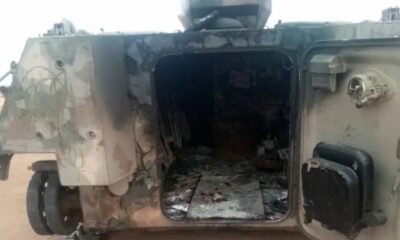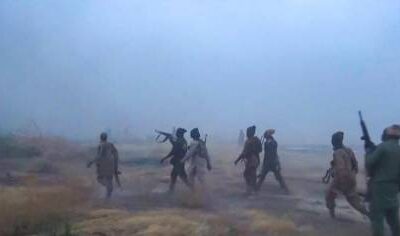The Nation
Kukah to Tinubu : Nigeria becoming ‘a national morgue’

The Catholic Bishop of Sokoto Diocese, Matthew Kukah, has voiced grave concerns about Nigeria’s deepening security and economic challenges, warning that the country is slowly degenerating into what he described as “a national morgue.”
Delivering his Easter message on Sunday, Bishop Kukah lamented the spate of killings, kidnappings, and general insecurity plaguing the nation. He said Nigeria was grappling with “a culture of brutality and savagery never witnessed in the history of our dear country.”
The cleric likened the suffering of Nigerians to the pain of crucifixion and urged President Bola Ahmed Tinubu to step in decisively.
“Mr. President, we all admit that you neither erected this cross nor initiated our collective crucifixion. However, Nigerians have been left bleeding and dangling on this cross of pain and mindless suffering for far too long,” Kukah said.
Highlighting the widespread impact of insecurity, Kukah noted that nearly every community in the country has been affected by violence.
“A dark pall of death hangs languidly from north to south. Every day, innocent citizens are kidnapped and held under the most inhuman conditions. Nigeria is reaching a breaking point,” he warned.
Bishop Kukah also criticized the government’s approach to economic hardship, particularly its reliance on distributing palliatives.
“While we agree that removing fuel subsidies was a necessary decision and acknowledge the availability of more domestic resources, the reality is that farming has become one of the most dangerous occupations in Nigeria for over a decade. Mere palliatives are insufficient. What Nigerians need is sustainable access to food and security,” he stated.
He called on President Tinubu to prioritize food security as a fundamental human right.
“Make food security a constitutional right for all citizens. Mr. President, please bring us down from this painful cross of hunger,” he appealed.
Despite painting a bleak picture, the bishop urged Nigerians not to lose hope and encouraged collective action toward national healing.
“The structural deformities, iniquities, and corruption of our country must not be an excuse to lose hope. We are the light of the world, a city set on a hill. With the light of Christ, we can build a society that reflects the will of our Creator,” he said.






















